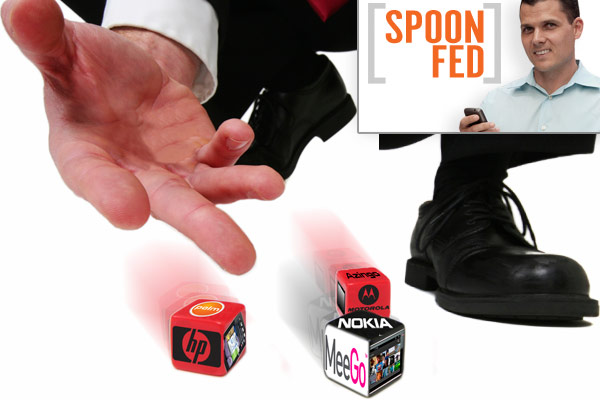In Mobile Wars, Winners Will Roll Their Own OS
Sign up to receive The Snapshot, a free special dispatch from Laptop Mag, in your inbox.
You are now subscribed
Your newsletter sign-up was successful
I readily admit I was one of the first people to poke fun at Samsung when it announced the release of its own smart phone platform called Bada. "Why the heck does the world need another OS?" I thought to myself. And I wasn't alone. But look what has transpired during the past few months. Nokia and Intel formed a partnership to launch the Meego OS (combining Maemo and Moblin). HP purchased Palm so it could have webOS all to itself. And yesterday came news that Motorola acquired mobile platform company Azingo, which is based on Linux. Mobile device makers know that the tight integration of hardware and software is critical for differentiation—even if it doesn’t guarantee success. In other words, the mantra of the mobile world is quickly becoming go closed or go home.
Think I'm nuts? This is what Motorola's co-CEO Sanjay Jha had to say during his company's first-quarter earnings call:
“I’ve always felt that owning your OS is important, provided you have an ecosystem, you have all the services, and you have an ability and the scale to execute on keeping that OS at the leading edge. And I continue to believe that at some point, if we have all of those attributes, owning our own OS will be a very important thing.”
This statement comes from a man who brought Moto back from the brink on the back of Android, an open platform that looks to dominate this summer's smart phones sales.
There's a reason HTC was apparently in the running for Palm before dropping out. The company realizes that there's a fundamental difference between deeply skinning an existing OS like Android with its Sense interface and services, and completely owning the user experience. That’s why HTC is developing its own platform called Smart, which borrows a lot of elements from Sense, though it’s designed for Brew-based feature phones. Same thing goes for Motorola with its Motoblur interface. It enhances the product but the underlying software belongs to someone else with their own ideas and their own timetable for updates. Even Microsoft is playing both sides of the fence, simultaneously gearing up to license Windows Phone 7 while releasing the Kin One and Kin Two phones based on its own homegrown software (although we found it to be full of holes).
The rolling-your-own OS trend isn’t limited to phones. As I discussed last week, HP will leverage its webOS for tablets, although the company may still experiment with Android or Windows. And as Apple and RIM have demonstrated, when executed well, owning the hardware and software parts of the equation can reap major benefits in terms of performance and battery life. You're also better able to respond to your own customers' needs, either in the form of updates or whole new products.
So what about apps? It's true that developers simply don't have the time or resources to create programs for a multitude of platforms. Even today they're forced to prioritize among the handful of available choices, and at least for now iPhone and Android are winning. Longer term, however, HTML5 could be an equalizer of sorts in creating web apps that are universal with offline capabilities, making the underlying OS less relevant (at least to the end user). And in the short term Adobe could make some waves with its Air for Mobile platform, bringing the world closer to write-once, run-everywhere bliss.
Of course, marrying hardware and software by itself doesn't guarantee success. But from where I sit, this strategy is quickly becoming a necessary step on that path, leaving those companies who simply use off-the-shelf solutions at a major disadvantage.
Sign up to receive The Snapshot, a free special dispatch from Laptop Mag, in your inbox.
Editor-in-chief Mark Spoonauer directs LAPTOP's online and print editorial content and has been covering mobile and wireless technology for over a decade. Each week Mark's SpoonFed column provides his insights and analysis of the biggest mobile trends and news. You can also follow him on Twitter.


